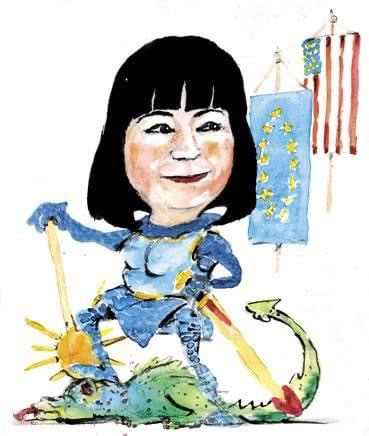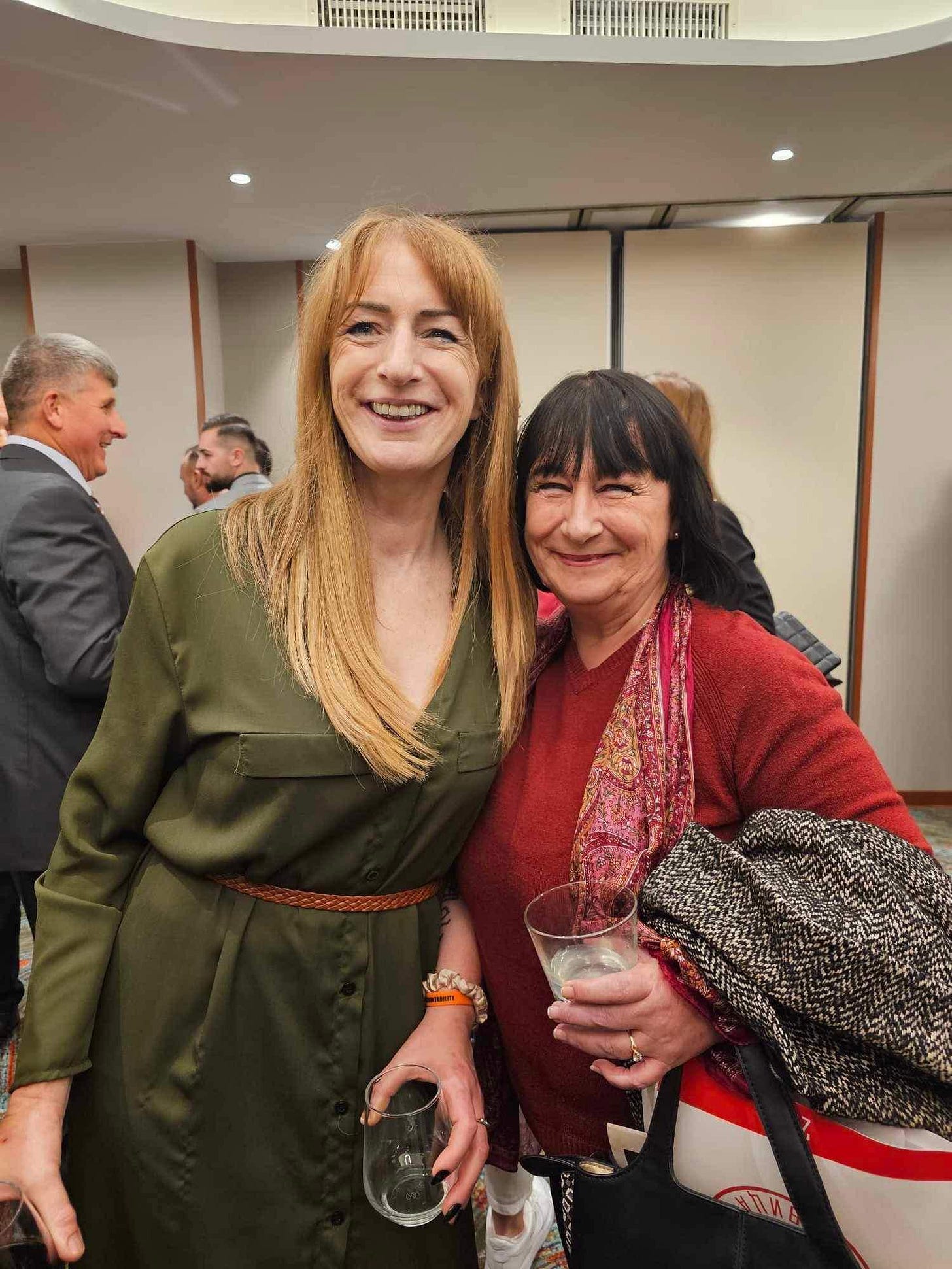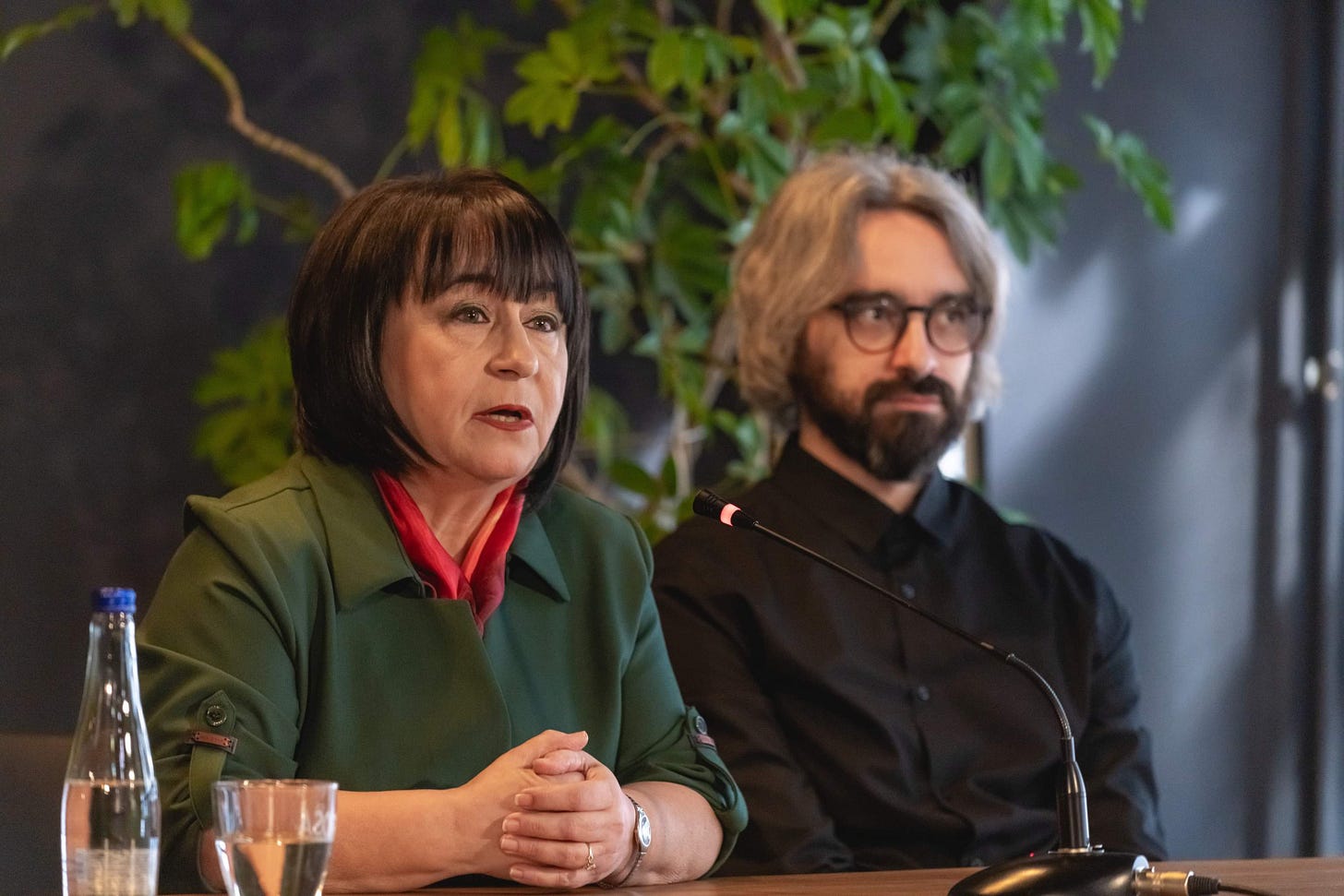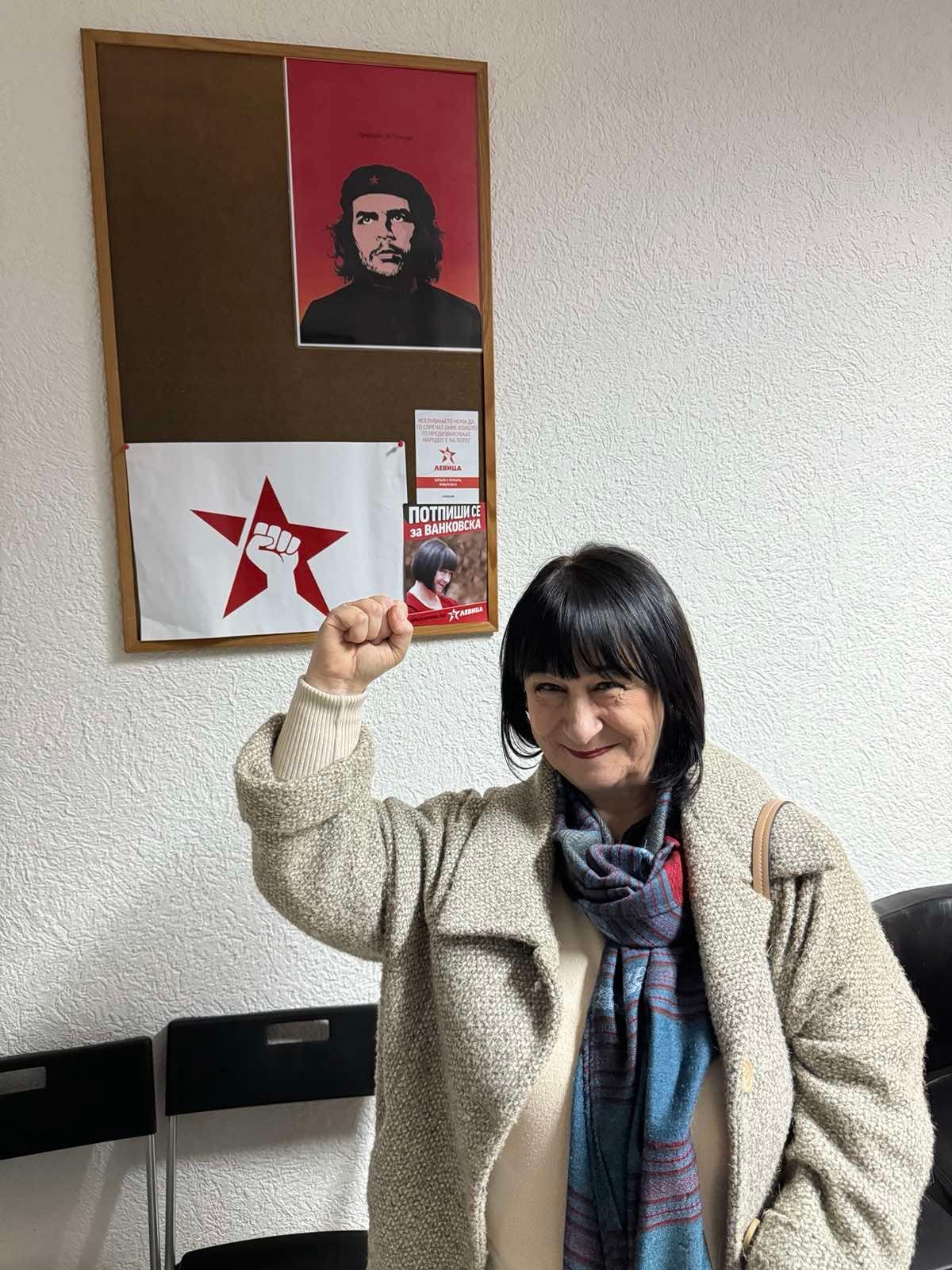As the end of yet another year approaches (with increasingly faint hope that it won’t bring us closer to the end of the world), I’ve decided to indulge in a bit of self-reflection. So much has happened to me over the past 12 months that I still haven’t fully weighed it all—was it good or bad, and was it worth it? During New Year’s celebrations, people often talk about the “craziest night” of the year (late and so popular Yugoslav singer and poet Balašević beautifully described it as a parade of drunkenness and kitsch, albeit in a different context). For me, however, 2024 will forever stand out as the “craziest year of my life.”
Around this time last year, I was considering slowing down and becoming more selective with my commitments. My graying hair gave me the right (or so I thought) to assess life with greater wisdom and maturity, focusing on what truly matters. But, of course, that doesn’t mean I followed through. The eternal battle between the heart and the mind spares no one, no matter their age. Just when reason nudges you toward something calmer, safer, and wiser, the heart steps in—turning all your carefully made plans upside down.
As I’ve done many times before, I promised myself a quieter life: perhaps to finally write a novel or at least a story about Macedonia for my grandchildren. (At the time, Lilith hadn’t been born yet, but we already knew she was smiling in her mother’s womb—thanks to those incredible images that manage to invade even the privacy of unborn babies.)
This year has been a whirlwind—an unforgettable, unpredictable, and extraordinary chapter of my life. And despite the chaos, I can’t help but wonder if, somehow, it was all meant to be.
The Unexpected Call to a Quixotic Political Battle
Out of the blue came the invitation to join a quixotic political battle, one where the outcome was all too easy to predict: the small far-left party The Left had decided I was the most suitable candidate to represent them in the presidential elections. Reason immediately responded with a firm "NO," but my heart—and even more so, the person dearest to my heart—countered with a resolute "YES." The mind cannot comprehend the arguments of the heart, just as the heart cannot grasp the language of the mind; they speak two entirely different languages.
The emotional call was fierce and defiant: “Face defeat with your eyes wide open, but don’t give up—show that an left idea is worth fighting, even at the cost of self-sacrifice.” Yet reason whispered: “You know this won’t be easy. This is not a step you—or others—will easily forget.” Both reason and heart beat on the left side, and perhaps that’s why they managed to find a fragile truce, if only for a few months.
Clare Daly’s support, among many others from abroad, meant a lot!
My short-lived political career began publicly in early February 2024, but the preceding period was intense, filled with preparations: drafting an electoral program, designing slogans, producing campaign ads, making plans, and, of course, rearranging my schedule to ensure that neither my professional commitments nor other obligations would suffer due to my foray into politics—a role I knew from the outset would cast me as a sacrificial lamb.
Even now, I feel a twinge of guilt that the news wasn’t shared immediately with the entire party membership but only announced during a press conference. The party’s internal bodies carried out their procedures in line with established principles and steps, but I wasn’t in a position to communicate this to the wider public. It was then I realized that in such situations, you don’t decide alone—you are part of a team with its own reasoning and motives, not all of which I necessarily agreed with (as someone who was not a party member).
Looking back, it’s clear that this decision shaped not only the year but also my perspective on the balance between personal conviction and collective responsibility.
Facing the Fire: A Journey through Politics and Sacrifice
As soon as the news broke that I would be a presidential candidate for the political party The Left, journalists greeted me with skepticism, immediately spinning narratives that I was running on someone else’s behalf or that I would serve as a pawn to gain or lose votes. Their doubts reflected a broader tendency to undermine any outsider or non-mainstream candidate, casting my intentions in a cynical light before I even had the chance to speak for myself.
I remained steadfast in what I declared from the very beginning: I would fight as best as I could, with no bargaining and no pretense. I knew that the party supporting me had approached this decision with a cold, calculated rationale (which, as we know, can often go astray—what’s planned at home rarely aligns with the realities of the marketplace). They needed a spark, an extension of their promotional momentum, a way to rally their membership during the grueling signature-collection phase, and to prepare for the parliamentary elections that would follow.
Once the first hurdle of gathering signatures was cleared, the idea of advancing to the second round of elections wasn’t even entertained. We all knew it was impossible. Realistically speaking, I was the only candidate with a far-left agenda—a pacifist, anti-NATO advocate, and supporter of a multipolar world—up against six others backed by powerful machines, embassies, financial resources, and united in their endorsement of the neoliberal and imperial status quo. By definition, I was destined to be eliminated in the first round.
The pragmatic electoral math (which ultimately proved flawed, though I wasn’t the one doing the calculations) predicted a surge of left-oriented voters who would bolster momentum for the more significant parliamentary battle to come. Yet, the actual turnout fell far short of the overinflated figures of 60, 80, or even 100,000 votes that were casually thrown around at rallies like confetti. The journey was anything but easy. At times, it was painful to witness the emptiness and devastation of Macedonia, but for the first time in my life, I had the absolute freedom to "legalize" political narratives that would otherwise be condemned as blasphemous or even hostile.
The mockery, slander, gossip, and insults didn’t touch me. I carried with me an invisible shield, woven from the trust and gratitude of ordinary people who were thankful that I was saying what they themselves believed. However, the most difficult moment came on the night the voting ended—not because of any personal disappointment, but because of what I saw in the eyes of my comrades. I knew I had fallen short, that I would be blamed for the failure. After all, that’s why I had been chosen—if anyone was to lose, better it be someone who had not been a party official, not one of their own.
How I personally experienced this—as almost a maternal sense of having let down those I cared about—is something only I can fully understand. My closest loved ones tried to lift me out of the dark abyss of depression, but the weight of it was mine to bear. It wasn’t until I saw a photo on Facebook—of a celebration, with the happy faces of six determined MPs from The Left—that I felt some relief. It meant I hadn’t caused a complete fiasco.
Playing the predetermined role of a loser is never easy, especially for someone like me, used to excelling at the peak of academia if nothing else. Still, one hopes for at least a gesture of kindness—a call, a “How are you holding up?” or even a casual chat over coffee. But life moves on, leaving little time to dwell on spilled milk or temporary political alliances.
Amidst all the chaos, my second grandchild Lilith was born—alive, healthy, and loud (just like her mother and grandmother, haha). It was a night of a starry sky, fireworks, and two bottles of champagne popped in her honor. But her grandma still had a race to finish before she could fly to Montreal to see her, hold her, and kiss her.
Work as a Cure and the Price of Unforgiven Success
They say work is the best cure for everything. I barely had time to recover when the stress of the second monumental task we had taken on as the Center for Global Changes began to press heavily: organizing a top-level academic conference.
According to some bizarre rules, the Faculty seems to have funds for glitzy receptions, boat parties, and music events when it comes to institutes, but Centers are expected to be self-sustaining (largely virtual) entities. In fact, I was even told that Centers were supposed to generate income for the Faculty. I won’t bore you with the saga, as even the sparrows know how difficult it was to beg and literally plead for every penny. Yet, some kind souls appeared when we needed help the most.
UKIM (Ss. Cyril and Methodius University) provided us with an initial grant. While we were grateful, it was far from sufficient to cover our actual needs. It was unrealistic to expect esteemed professors from distant lands to cover their own costs to participate in a conference in a relatively unknown country, hosted by our center. We had to secure additional resources to make their presence possible. Through donations and a grassroots campaign, reaching out to ordinary people, we managed to pull through. Along the way, we discovered that “ordinary” people are often extraordinary—heroic, wise, and far more insightful than the so-called learned elite.
We owe a deep debt of gratitude to the Embassy of the People’s Republic of China for partially supporting this event on the cooperative multipolar system—a topic that proved to be very scary and intimidating for any national institution or company to engage with.
The Macedonian diaspora worked harder than the faculty itself, which seemed to simply wait for something to fall into its coffers, as if collecting a tax. My colleagues and I, who made this exceptional conference a reality (now available on YouTube with all its panels and brilliant presentations), earned not a single dime. Everything was done on a volunteer basis. And we were not just happy—we were overjoyed—because our foreign colleagues experienced an exceptionally stimulating academic debate that they truly enjoyed.
The saga took an unexpected turn recently when I was officially dismissed from my role as head of the Center for Global Changes—without any explanation. The Dean, incidentally one of my former students, invoked his discretionary right to appoint and dismiss as he pleased. What could I do but laugh at the absurdity of it all? The Dean was more than happy to penalize and remove me from an unpaid, grueling position.
For me, it hardly felt like a loss, but more like a tragicomic episode for the university. Everything we achieved through hard work was not only exposed to slander and ridicule but also diminished the reputation of the entire university. Not even the rector of UKIM could bring him to his senses. The obedient professors, as usual, kept silent in the face of such evident injustice.
For that "caste," positions carry enormous weight, even at the cost of the university’s reputation. As a result, all the international board members of the Center tendered their resignations in protest. But for me, it’s always been about the results—the academic ones that transcend imposed geopolitical borders.
This final chapter of the Center’s story makes 2024 not just a crazy year but a tragicomic one. I didn’t take a summer vacation; my family from Canada and Dubai, and even I, contributed financially to the conference. An old Macedomnian saying reads: From fear, you can run away, but from shame—never.
I am still asking myself: why did I make this sacrifice? What for? For whom?
Maybe one day my reason will catch up with my heart.
The More Beautiful and Exciting Part of 2024: Opening of a New Horizon
The highlight of 2024 came in its second half. The (non-Western) world opened itself to me, expanding both my mind and chakras. Two conferences in China and one at the highest level in Russia marked an extraordinary shift. In some moments I felt like an academic Marco Polo.
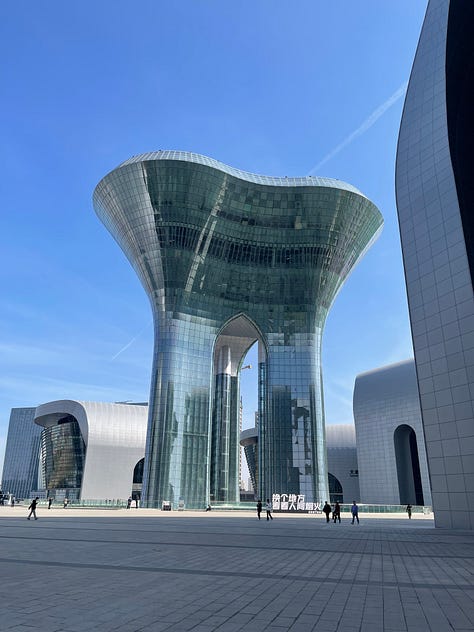



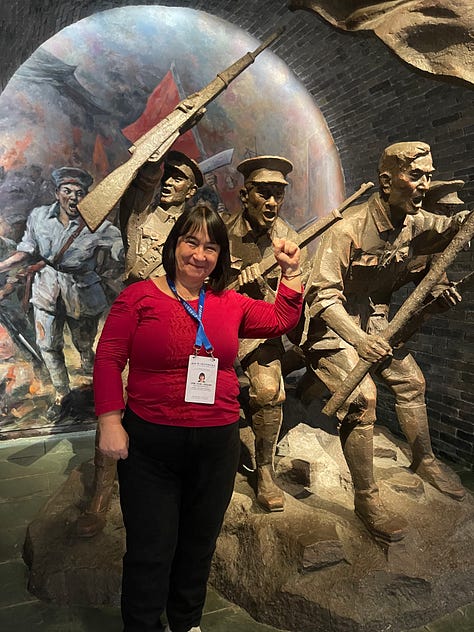
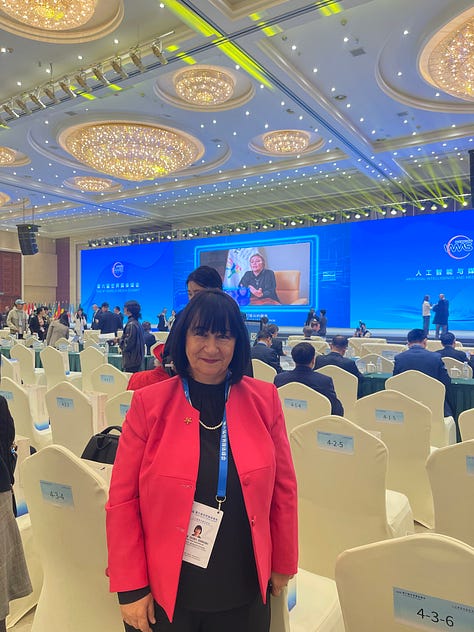
It was exhilarating to step out of the cage of a false but dominant—and even immoral—Western narrative that legitimizes the dismantling of states and supports genocides. It was intellectually provocative to speak from the podium on sensitive topics and to express my thoughts openly, even if it meant risking the sky falling. And then the recognitions came from various sides: “Respect for your courage and fresh perspective on global affairs.” Moments like that make you realize that we (from the European sub-periphery) are part of the world, that we belong to the world community, and that we have something to say. We are not (all) colonized minds trapped in brown sahib complacency.
Now, I look forward to endless possibilities for collaboration on projects, guest lectures as a visiting professor, and publishing articles across continents. I say “now,” but I’m actually looking forward to August 2025, which I am eagerly anticipating. That’s when I will finally step away from the intellectual decay, toxic atmosphere, and captive minds of those who can only parrot the mantra “NATO, EU, NATO, EU”—while conveniently ignoring the realities of Gaza, Lebanon, Syria, Sudan, or Congo. It will be a liberation from a narrow, self-serving worldview and a step toward engaging with diverse perspectives that truly matter.
The big news is that I have decided to free myself from the stifling cage I’ve inhabited for far too long: 2025 will be the year I take early retirement. I hope my students will understand—after all, they were the brightest part of my academic journey, the true highlight of these years. As Noam Chomsky once said, “Academics are not nice people,” and he was right—especially when they are ambitious, morally compromised, and mediocre.
For the first time since childhood, I feel a profound sense of joy and anticipation as a new calendar year approaches. It feels like stepping into a new chapter filled with promise and freedom.




